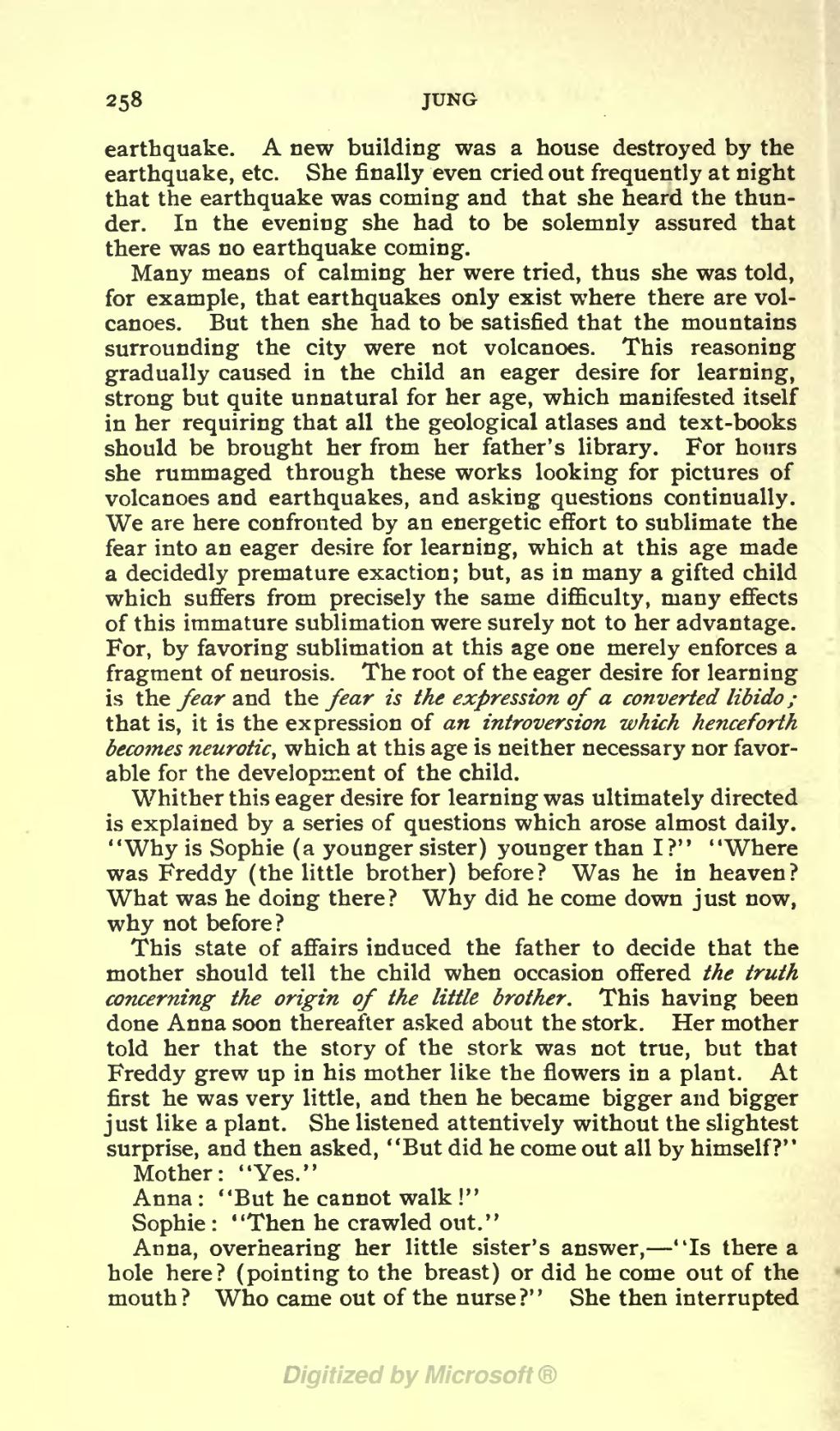earthquake. A new building was a house destroyed by the earthquake, etc. She finally even cried out frequently at night that the earthquake was coming and that she heard the thunder. In the evening she had to be solemnly assured that there was no earthquake coming.
Many means of calming her were tried, thus she was told, for example, that earthquakes only exist where there are volcanoes. But then she had to be satisfied that the mountains surrounding the city were not volcanoes. This reasoning gradually caused in the child an eager desire for learning, strong but quite unnatural for her age, which manifested itself in her requiring that all the geological atlases and text-books should be brought her from her father’s library. For hours she rummaged through these works looking for pictures of volcanoes and earthquakes, and asking questions continually. We are here confronted by an energetic effort to sublimate the fear into an eager desire for learning, which at this age made a decidedly premature exaction; but, as in many a gifted child which suffers from precisely the same difficulty, many effects of this immature sublimation were surely not to her advantage. For, by favoring sublimation at this age one merely enforces a fragment of neurosis. The root of the eager desire for learning is the fear and the fear is the expression of a converted libido; that is, it is the expression of an introversion which henceforth becomes neurotic, which at this age is neither necessary nor favorable for the development of the child.
Whither this eager desire for learning was ultimately directed is explained by a series of questions which arose almost daily. “Why is Sophie (a younger sister) younger than I?” “Where was Freddy (the little brother) before? Was he in heaven? What was he doing there? Why did he come down just now, why not before?
This state of affairs induced the father to decide that the mother should tell the child when occasion offered the truth concerning the origin of the little brother. This having been done Anna soon thereafter asked about the stork. Her mother told her that the story of the stork was not true, but that Freddy grew up in his mother like the flowers in a plant. At first he was very little, and then he became bigger and bigger just like a plant. She listened attentively without the slightest surprise, and then asked, “But did he come out all by himself?”
Mother: “Yes.”
Anna: “But he cannot walk!”
Sophie: “Then he crawled out.”
Anna, overhearing her little sister’s answer,—“Is there a hole here? (pointing to the breast) or did he come out of the mouth? Who came out of the nurse?” She then interrupted
